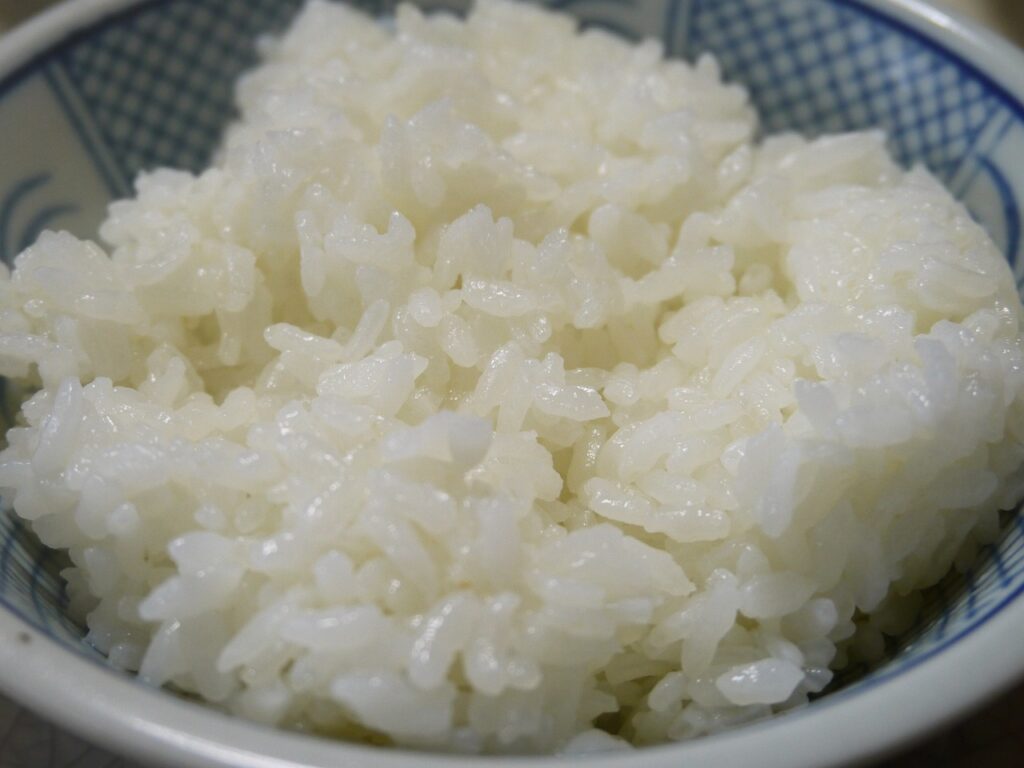| The Pros And Cons Of Eating Rice Daily: Debunking The Myth |
|
| Rice has long been a staple food for billions of people around the world. However, there is a common belief that consuming rice every day can be detrimental to health. Let's debunk this myth by examining the pros and cons, asking is eating rice everyday bad? On one hand, rice provides essential carbohydrates, vitamins, and minerals necessary for energy production and overall well-being. |
| It is gluten-free and easily digestible, making it suitable for those with dietary restrictions or sensitive stomachs. On the other hand, overconsumption of rice may lead to weight gain due to its high calorie content. Additionally, some studies suggest a link between excessive rice intake and an increased risk of diabetes. |
Exploring The Nutritional Value Of Rice In Everyday Diet | |
| Rice has long been a staple food for billions of people worldwide, but there is a prevailing concern about its potential negative health effects when consumed daily. However, research suggests that eating rice every day can actually provide significant nutritional benefits. Firstly, rice is an excellent source of carbohydrates, essential for fueling the body and maintaining energy levels throughout the day. |
| Additionally, it contains various vitamins and minerals like iron, manganese, and B-vitamins that support overall well-being. Furthermore, rice is naturally gluten-free and low in fat, making it suitable for individuals with dietary restrictions or those aiming to maintain a healthy weight. |
Potential Health Risks Associated With Consuming Rice Daily | |
| Consuming rice daily may seem like a harmless dietary choice, but there are potential health risks to consider. One concern is the high glycemic index of rice, which means it can cause a rapid spike in blood sugar levels. This can be problematic for individuals with diabetes or those trying to manage their weight. Additionally, rice is predominantly composed of carbohydrates and lacks essential nutrients found in other food groups. |
| Relying solely on rice as a staple may lead to nutrient deficiencies and imbalances in the diet. Furthermore, some types of rice contain traces of arsenic, a toxic substance that can accumulate in the body over time and pose long-term health hazards. It's crucial to maintain a varied and balanced diet to mitigate these potential risks associated with consuming rice daily. |
Balancing Your Rice Intake: Tips For A Healthy Diet | |
| Rice is a staple food in many cultures, but is eating it every day detrimental to our health? The answer lies in finding the right balance. While rice provides essential carbohydrates and nutrients, excessive consumption can lead to health issues like weight gain and an increased risk of diabetes. To maintain a healthy diet, consider these tips. Firstly, opt for whole grain varieties like brown or wild rice that offer higher fiber content and more nutrients. |
| Secondly, control portion sizes by using smaller plates or bowls to avoid overeating. Additionally, diversify your meals by incorporating other grains like quinoa or barley into your diet. Lastly, complement your rice with a variety of vegetables and lean proteins for a well-rounded meal. |
Alternatives To Rice: Diversifying Your Grains For Optimal Nutrition | |
| While rice is a staple food for many cultures around the world, consuming it every day may not provide the optimal nutrition your body needs. By diversifying your grain choices, you can enhance your overall health and well-being. Consider incorporating alternatives such as quinoa, barley, or millet into your diet. These grains offer a range of nutrients including essential amino acids, vitamins, and minerals that rice may lack. |
| Quinoa, for instance, is a complete protein source while barley provides soluble fiber to support digestive health. Experimenting with different grains not only adds variety to your meals but also ensures you obtain a wider range of nutrients necessary for optimal nutrition. |

